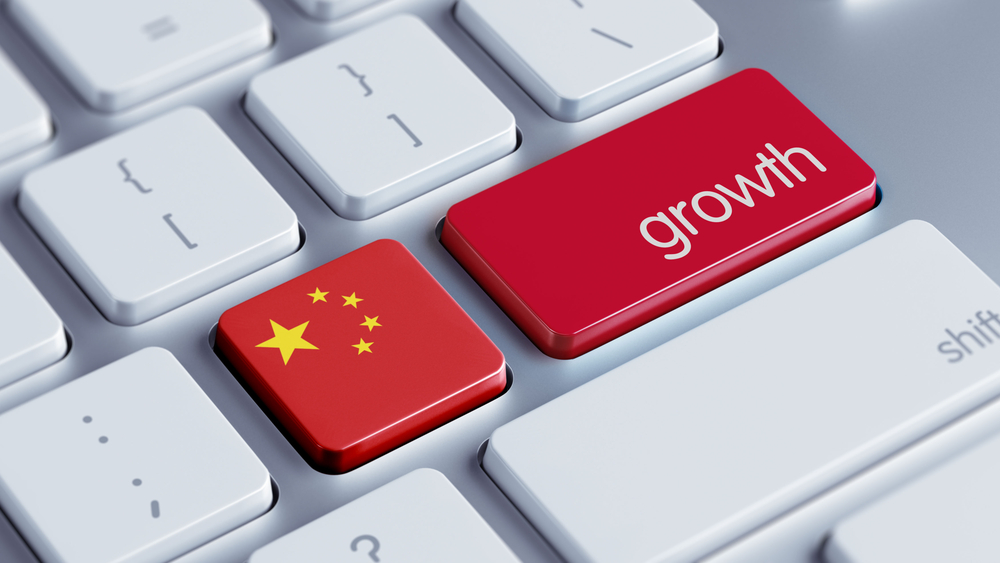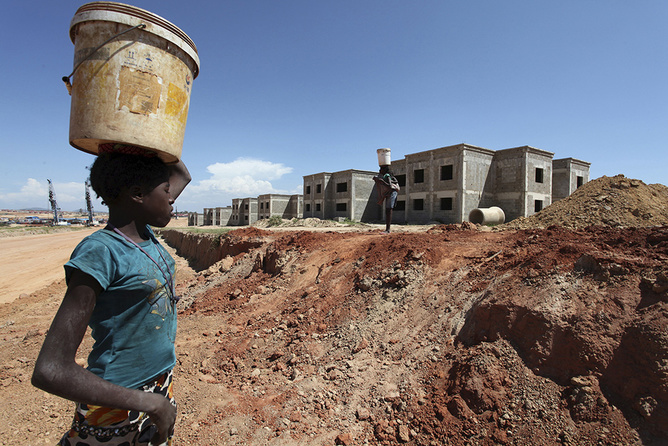China’s Tie-up with Africa Needs Fundamental Acceptance by Africans

Please note that we are not authorised to provide any investment advice. The content on this page is for information purposes only.
China’s ties to Africa are likely to get stronger this year, as the world’s biggest economy appears poised to once again, double its investments across the fast-growing continent.
The run-up to the sixth Forum on China-Africa Cooperation (FOCAC) early next month in South Africa is under way. The forum – in its 15th year and the first held under President Xi Jinping’s administration – has been the main venue for setting the investment, trade and integration agenda between China and countries in Africa.
China’s ties to Africa are likely to get stronger this year, as the world’s biggest economy appears poised to once again, double its investments across the fast-growing continent.
The run-up to the sixth Forum on China-Africa Cooperation (FOCAC) early next month in South Africa is under way. The forum – in its 15th year and the first held under President Xi Jinping’s administration – has been the main venue for setting the investment, trade and integration agenda between China and countries in Africa.
However, has this relationship been as good for Africa as it has been for China? In addition, what can other countries beginning to receive more of its largesse learn from it?
Spreading wealth
China, the poster child for economic growth in recent decades, has been increasingly keen to spread its wealth and influence around.
Even though the country is suffering from a slowdown and expected to achieve “only” single-digit growth rate in the coming years, it remains one of the fastest-growing economies in the world. Its success has been, in part, the result of it being the recipient of huge amounts of foreign direct investment itself.
As China gradually embraces the roles and responsibilities of the world’s biggest economy as well, it is increasingly reversing that flow of cash and expects to surpass the US as the largest investor in other countries.
The inauguration of the China-led Asian Infrastructure Investment Bank, a rival to the World Bank and International Monetary Fund, has US$100 billion in financial firepower. The new China-Pakistan Economic Corridor (CPEC), which will run from Gwadar in Pakistan to China’s western Xinjiang region, has support by a historical agreement of over $46 billion.
Indeed, estimates of the amount of investments made by China abroad are $531 billion in outward foreign direct investment, with 4% of it – $22 billion – going to investments in natural resource extraction, finance, infrastructure, power generation, textiles, and home appliances in Africa.
That is a small sum at first glance, but its economic impact to the region is both huge and far-reaching, especially in Sub-Saharan Africa, with the biggest investments made in Nigeria, Sudan, South Africa, and Angola.
In addition to investment projects, China has quickly become the continent’s biggest trading partner, with trade volume of $166 billion in 2014. This is likely to continue to increase and reach an estimated $1.7 trillion by 2030.
image
Many Africans are concerned that projects such as this construction site in Lubango, Angola, only enrich their leaders at their expense. Reuters
Losing hearts, minds, and jobs?
However, despite the substantial investments, most of them have been routinely cast as detrimental to Africa’s overall competitiveness.
The projects are dependent on deals made at the highest political levels. They lack competitive and transparent bidding processes, and most of the work force employed at these ventures has been Chinese. Promises of job creation are unfulfilled. Further, when Africans are hired, local rules and regulations are often flouted, leading at times to poor safety.
For instance, at Chinese-run mines in Zambia’s copper belt, employees must work for two years before they get safety helmets. Ventilation below ground is poor, and deadly accidents occur almost on a daily basis.
More frequently, jobs are lost to Chinese employees, who are ferried in project by project. For example, the growing Chinese presence in South Africa may have cost the country 75,000 jobs from 2000 to 2011. In Nigeria, the influx of low-priced Chinese textile goods has caused 80% of Nigerian companies in this industry to close.
Illegal practices carried out by Chinese firms could also shape Africans’ impressions of them.
For example, by law, mining on small plots of 25 acres or less is restricted to Ghanaian nationals. However, many Chinese continue to explore for gold in conjunction with local landowners, even though regulations have made it clear that such practice is illegal. The result: many Africans see themselves exploited by the newcomers.
One-sided trade?
Perhaps making matter worse, the kinds of goods that the two partners trade with each other have done little to change such perception.
Whereas China buys from Africa, mainly natural resources – minerals and metals – African countries import primarily the finished results, ranging from machinery and electrical goods to plastics and rubber.
Such an arrangement could benefit both parties, but it is more often China exploiting Africa’s natural resources to feed its need for industrial output.
At the same time, by exporting cheap – and often shoddy – manufactured goods to African countries, local companies not only become less competitive but they also grow increasingly dependent on China.
Recent research has also suggested that the Chinese presence has failed to bring significant skill developments, adequate technological transfer, or any measurable upgrade to the productivity levels to this part of the world.
Jobs and infrastructure not just oil and mines
Recently, China has become more tactful in its approach to Africa, trying to preempt the perception that its presence in Africa may be one-sided only.
In this year’s China-Africa forum, for example, the Middle Kingdom believes to be making efforts to mitigate the broad criticisms of its “mercantilist” approach toward Africa by, among other things, offering more access to capital for local companies. The fact is that China’s Export-Import Bank extended $62.7 billion in loans to African countries from 2001 to 2010, some $12.5 billion more than the World Bank.
In addition, contrary to what many may believe, China’s investment is not concentrated in countries with inadequate rule of law. The biggest recipient is in fact South Africa – though the Chinese presence is often more visible in other countries from which Western governments have shied away.
Indeed, as researchers have pointed out, Chinese investments are not concentrated in natural resources: services are the most common sector, with significant investments in manufacturing as well. This suggests that China is now doing more to help African countries to build up their competitiveness.
Lately, the Middle Kingdom has tended to reduce to publicize major oil and mining contracts and instead has focused more on areas where it is creating jobs, investing in infrastructure and transferring technology. Moreover, the latest Forum on China-Africa Cooperation is meant to show case that.
However, will loans to support new railroads and other infrastructure projects be enough to make up for concerns about the exploitation of African resources?
The challenge for Xi, and China, is to further develop the relationship and at the same time alter sometimes-negative perceptions. That’s the opportunity presented by the forum, which could be a game changer for China, its external policy model and its growing footprint beyond its borders.
Key to that is ensuring Chinese companies operating in Africa comply with local rules and regulations. They also have to change their views of the locals, so that the latter are equal business partners.
Only by making, such fundamental shifts can China capture people’s hearts and minds and not just their mines.
What does China’s role in Africa say about its growing global footprint? is republished with permission from The Conversation






